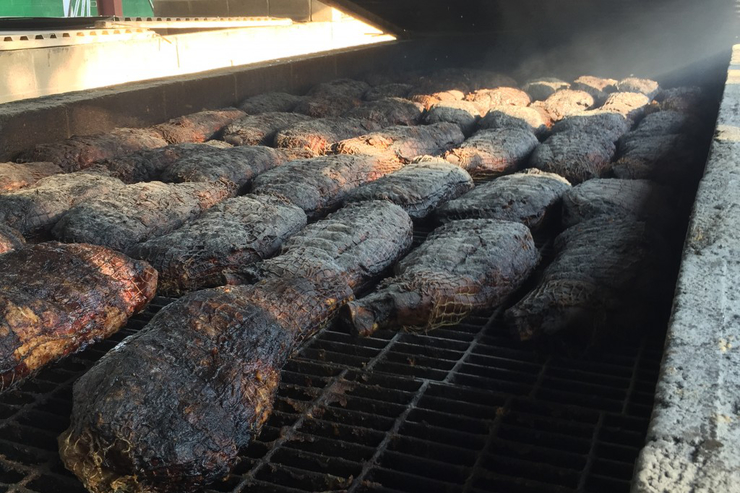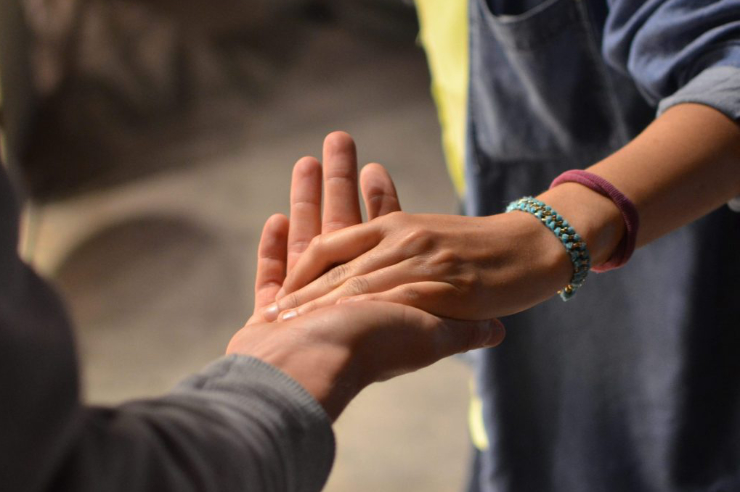The last weekend of July is usually one of the hottest of the summer in Tennessee. In a little town fifty-five miles west of Nashville, that weekend boasts an annual festival that was once listed in the Guinness Book of World Records as the world’s largest outdoor barbecue. Pork shoulders are nursed all throughout the night so that they’re done to perfection for the hungry crowds. And yes, the crowds come. A town of seventeen hundred people expands to nearly twenty-five thousand as people drive from Nashville and the surrounding area in search of that smoky, tender pork and that secret-recipe sauce that one can only find at St. Patrick’s Catholic Church.
St. Patrick’s was established in 1849 for the Irish immigrants who had come to build a railroad to connect Louisville and Memphis. The first picnic was held in 1854 by parishioners of St. Patrick to raise money for a new church bell. Local farmers donated sheep and pigs, and their efforts were so successful, the picnic never stopped. One hundred sixty-one years later, the picnic still supports the work of St. Patrick’s Church, now as the primary fundraiser for the K-8 school that was founded in 1856.
As I walked through the picnic grounds, my nephews gleefully throwing rings at two liters of Fanta or darts at balloons filled with paint, I saw a community that had come together for a common cause. A 161-year-old picnic doesn’t just happen. Twenty-one thousand lbs of pork and forty-two hundred chicken halves don’t just happen. A school with ninety-one students doesn’t throw a party for twenty thousand people alone.
It takes a community. And that’s what I observed walking through the festival grounds, which are a permanent fixture next to the parish buildings. There were parents manning the booths next to parishioners who haven’t had children in the school for years. There were people who had moved to McEwen less than a month earlier next to people whose great-grandparents had worked the picnic. Non-Catholics were working alongside religious sisters. Through the sweat, the smoke, and the stress that comes with any event that size, a community comes together every year to raise money so a little school can open its doors every year and give children a Catholic education.
Isn’t that what the Catholic life is about? We work and toil in this valley of tears, but we don’t toil alone. We do it in a community. It is true that it takes a village. But it’s more than a village—it’s a family. No matter how holy I try to be, I can’t get to heaven by myself. And if I tried to get there without helping you up too, I’d be failing in my baptismal call.
The weeds and the wheat, the sinners and the saints—like it or not, we’re in this together. The sooner we realize that, the happier this journey will be. Our joys are augmented and our crosses are made lighter when they are shared. There’s a reason God gave Adam a helpmate.
Most of us are called to live out our vocations to holiness surrounded by the world. Some days it may seem like it would be easier to get to heaven without all these people in our way. But we were created for love, and the path to heaven is the path of self-gift. Some days are filled with serving our neighbor, but there are also days when we need to be served. Some phases in our life are full of great gifts from God, but there are also times when we need the gifts he has given to others. Each of us has a unique path to heaven, but our paths aren’t not solitary. The gifts God gives me in this life are given with heaven in mind, but they are not uniquely mine—they were given to me in order to bring those around me to heaven too.
Jesus likened heaven to a banquet feast to which many were invited (Luke 14:16). Even though we’re probably not eating barbecue pork at that feast, I hope to see you there. Better yet—let’s carpool.















